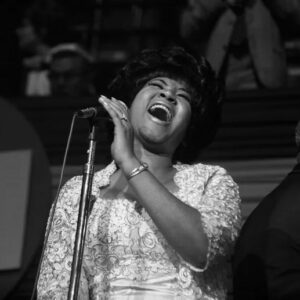In a surprising twist in the film industry, Ryan Gosling is set to star in a unique zombie comedy produced by Amazon MGM. Titled I Used to Eat Brains, Now I Eat Kale, this film promises to blend humor with the undead in a way that hasn’t been explored before. As the lines between horror and comedy continue to blur, Gosling’s foray into this peculiar genre represents not only an evolution in his own career but also an exciting development for audiences seeking fresh narratives.
Ryan Gosling’s New Role: A Comedic Evolution
Ryan Gosling has long been celebrated for his captivating performances, whether in gripping dramas like La La Land or intense thrillers like Blade Runner 2049. His range as an actor is undeniable, with each role revealing a different facet of his talent. However, his transition into a comedic role, especially within the zombie genre, is both unexpected and exhilarating.
Gosling’s ability to oscillate between brooding intensity and lighthearted charm makes him an ideal choice for this unconventional project. Fans are already familiar with his comedic chops from previous roles, such as in The Nice Guys, where he showcased a knack for physical comedy and witty banter. The film I Used to Eat Brains, Now I Eat Kale could mark a new chapter in his career, allowing him to explore humor in a fresh and innovative context while still appealing to his existing fan base.
The film’s premise revolves around a character who has undergone a significant transformation—once a brain-eating zombie, he now embraces a healthy, plant-based lifestyle. This metaphorical journey reflects not just a dietary change but also a broader narrative about personal growth and self-improvement. As Gosling steps into the shoes of this character, audiences can expect a blend of absurdity and heartfelt moments that challenge societal norms around health, wellness, and what it means to change.
The Unique Concept: Satire Meets Horror
The film’s title itself—I Used to Eat Brains, Now I Eat Kale—is a delightful nod to contemporary health trends, suggesting a satirical lens through which the zombie genre can be explored. Traditionally, zombie films have relied heavily on gore, suspense, and apocalyptic themes. However, this new offering seems poised to turn those conventions on their head by introducing a narrative that intertwines dietary choices with the classic undead trope.
In recent years, audiences have shown an increasing appetite for films that subvert traditional genres. Zombieland and What We Do in the Shadows have paved the way for comedic takes on horror, and now I Used to Eat Brains, Now I Eat Kale seeks to carve out its own niche. The integration of humor with horror opens up a plethora of creative possibilities, allowing filmmakers to comment on societal norms while still delivering entertainment.
The film could cleverly critique the wellness industry, exploring the absurdity of health trends that dominate popular culture. By juxtaposing the grotesque imagery of zombies with the wholesome concept of kale and plant-based diets, the film might offer a unique commentary on the extremes of contemporary living. It raises questions about identity, transformation, and the societal pressures surrounding diet and health, all while delivering laughs and thrills.
Amazon MGM’s Strategy: Embracing Quirkiness
In recent years, Amazon MGM has demonstrated a keen interest in producing unique and quirky content, setting itself apart in an increasingly competitive streaming landscape. This trend reflects a broader shift in the industry, where audiences are clamoring for original storytelling that pushes conventional boundaries. The decision to invest in a film like I Used to Eat Brains, Now I Eat Kale signals a commitment to innovation and creativity that resonates with contemporary viewers.
With streaming platforms continuously vying for viewer attention, the importance of originality cannot be overstated. By offering a film that straddles the lines between comedy, horror, and satire, Amazon MGM is positioning itself as a player willing to take risks. This strategy not only attracts diverse audiences but also encourages a new generation of filmmakers to experiment with genre-blending narratives.
The rise of streaming services has changed the way audiences consume content, and quirky films like this one could very well become the new standard. By showcasing unusual premises and unexpected talent, platforms like Amazon MGM can foster a space where creativity thrives. I Used to Eat Brains, Now I Eat Kale is a perfect example of how these companies can disrupt traditional filmmaking paradigms and invite viewers to engage with stories that challenge the norm.
Audience Appeal: A Diverse Viewer Base
As genres like horror and comedy continue to grow in popularity, I Used to Eat Brains, Now I Eat Kale aims to attract a diverse audience. The film’s unique premise is likely to resonate with fans of Gosling who are eager to see him in a new light, as well as horror enthusiasts who enjoy a fresh take on familiar themes. Furthermore, comedy lovers will appreciate the absurdity that comes with blending dietary fads and zombie lore.
The film’s appeal extends beyond just the star power of Gosling. The intersection of humor and horror has a universal charm that can attract a wide demographic. College students looking for a fun night out, families searching for lighthearted entertainment, and genre aficionados eager for something innovative are all potential viewers. This broad appeal is a testament to the film’s engaging concept, which promises to entertain while prompting reflection on the absurdities of modern life.
Potential Impact: Setting a New Standard
If executed well, I Used to Eat Brains, Now I Eat Kale could set a new standard for horror comedies. By effectively blending humor with the familiar tropes of the zombie genre, the film has the potential to influence future projects in ways that embrace innovation and creativity. The success of this film could inspire a wave of similarly themed projects that explore unconventional narratives, ultimately enriching the cinematic landscape.
In an industry often criticized for recycling ideas, I Used to Eat Brains, Now I Eat Kale serves as a refreshing reminder that originality still has a place in mainstream cinema. The film may encourage writers and directors to take risks, explore new themes, and challenge genre conventions, fostering a culture of creativity that invites diverse storytelling.
Moreover, the film’s unique blend of comedy and horror could encourage discussions around diet, health, and identity in ways that are both entertaining and thought-provoking. As audiences engage with the film, they may find themselves reflecting on their own dietary choices and the broader societal implications of health trends. By prompting such conversations, the film could have a lasting impact beyond its immediate entertainment value.
Conclusion
I Used to Eat Brains, Now I Eat Kale stands at the intersection of comedy, horror, and societal critique, marking an exciting new chapter in Ryan Gosling’s career and a potential game changer in the zombie genre. As audiences await this unique film, there’s a palpable sense of anticipation about how it will unfold. With a blend of humor and thought-provoking themes, this project has the power to redefine expectations and offer a fresh perspective on the beloved yet often formulaic zombie narrative.
In a cinematic landscape that craves originality, Gosling’s new venture promises not only to entertain but also to challenge audiences to rethink what it means to evolve—whether in the context of personal identity or dietary choices. As the undead meet the green revolution, viewers can look forward to a ride that promises laughs, thrills, and perhaps even a little food for thought.





